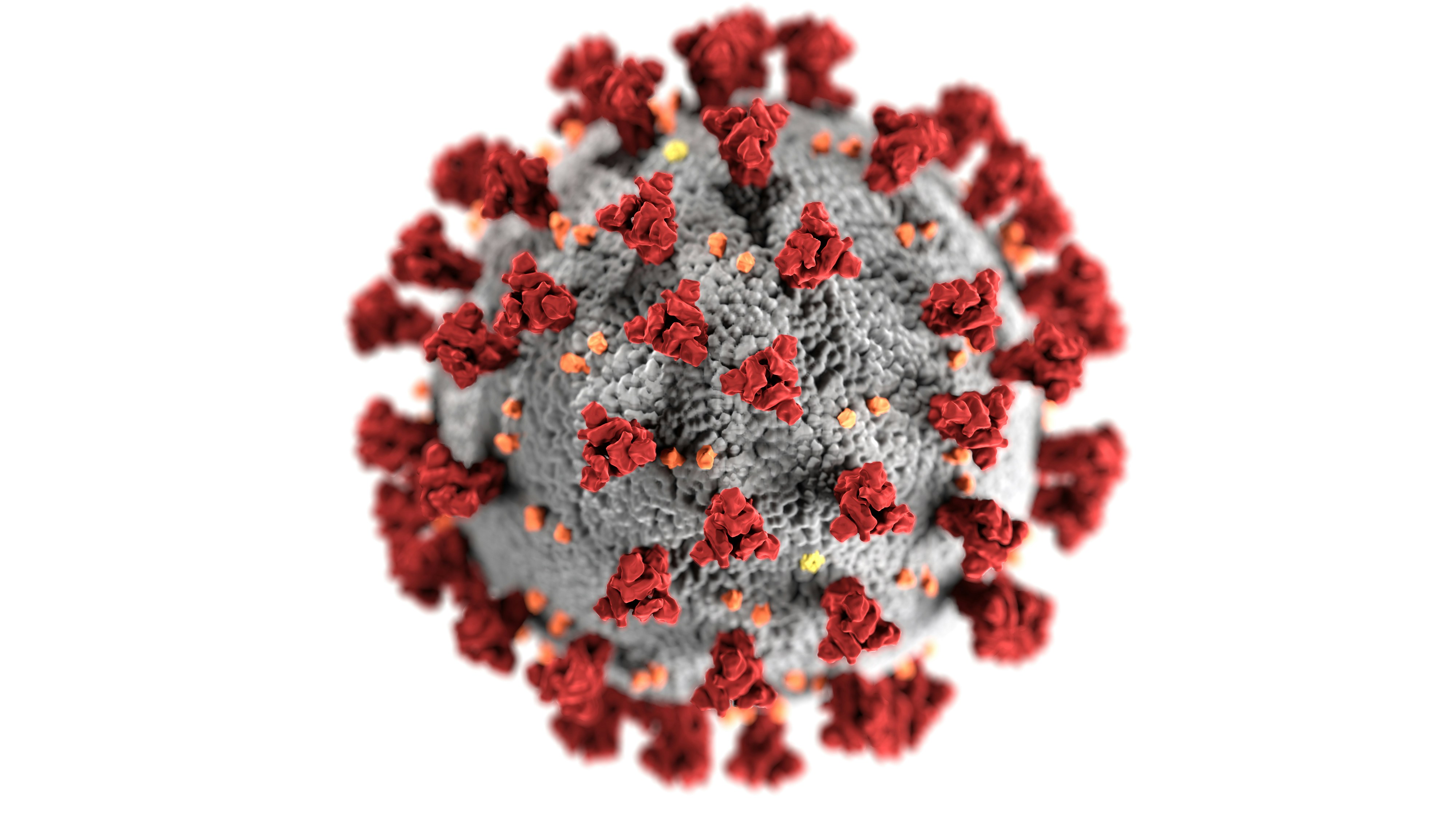In this article, we will explore the fascinating and often overlooked connection between the COVID-19 pandemic and hearing loss. As we navigate through these challenging times, it is crucial to understand how this virus can potentially affect our hearing abilities. From the impact on auditory nerves to the consequences of extended mask usage, we will uncover the various ways in which COVID-19 can influence hearing health. So, sit back, relax, and let’s embark on this informative journey together.
Overview of COVID-19
COVID-19 is an infectious disease caused by the novel coronavirus, SARS-CoV-2. It first emerged in late 2019 in Wuhan, China, and has since spread rapidly across the globe, leading to a global pandemic. COVID-19 has had a profound impact on society, affecting various aspects of our lives, including our physical health, mental well-being, and daily routines.
What is COVID-19?
COVID-19 is an abbreviation for “coronavirus disease 2019.” It primarily affects the respiratory system, causing symptoms such as fever, cough, and difficulty breathing. In severe cases, it can lead to pneumonia and acute respiratory distress syndrome (ARDS), which can be life-threatening. The virus is primarily transmitted through respiratory droplets when an infected person coughs, sneezes, or talks, but it can also spread by touching contaminated surfaces and then touching the face.
How does COVID-19 spread?
COVID-19 primarily spreads through close contact with an infected individual or by touching surfaces contaminated with the virus. When an infected person coughs, sneezes, or talks, respiratory droplets containing the virus are released into the air. These droplets can then be inhaled by others who are in close proximity to the infected person. The virus can also survive on surfaces for hours or even days, making it possible for individuals to contract the virus by touching contaminated surfaces and then touching their face without proper hand hygiene.
Impact of COVID-19 on Society
The impact of COVID-19 on society has been immense. It has disrupted economies, strained healthcare systems, and caused widespread social and psychological distress. The pandemic has led to lockdowns, travel restrictions, and the implementation of various preventive measures such as mask-wearing, social distancing, and frequent handwashing.
These measures, while necessary to control the spread of the virus, have resulted in significant changes in our daily lives. Schools and businesses have transitioned to remote work and online learning, large gatherings and events have been canceled or postponed, and the healthcare system has faced increased demands, shifting resources to combat the virus and its consequences.
Understanding Hearing Loss
Hearing loss is a condition that affects millions of individuals worldwide. It can have a profound impact on a person’s ability to communicate, socialize, and participate fully in daily activities. Understanding the different types, causes, and prevalence of hearing loss is essential in addressing its impact on individuals’ overall health and well-being.
Types of Hearing Loss
There are three main types of hearing loss: conductive, sensorineural, and mixed. Conductive hearing loss occurs when there is a problem conducting sound waves through the outer ear, middle ear, or both. Sensorineural hearing loss, on the other hand, results from damage to the delicate hair cells in the inner ear or damage to the auditory nerve. Mixed hearing loss is a combination of both conductive and sensorineural hearing loss.
Causes of Hearing Loss
Hearing loss can be caused by various factors, including genetic conditions, aging, exposure to loud noise, certain medications, infections, and underlying health conditions such as diabetes and cardiovascular disease. These factors can damage the structures of the ear or interfere with the transmission of sound signals to the brain.
Prevalence of Hearing Loss
Hearing loss is a prevalent condition globally, affecting individuals of all ages. According to the World Health Organization (WHO), over 5% of the world’s population, or 466 million people, have disabling hearing loss. This number is expected to increase significantly in the coming years due to factors such as an aging population, increasing noise exposure, and the impact of diseases like COVID-19.
Effects of Hearing Loss
Hearing loss can have a significant impact on an individual’s life. It can affect their ability to communicate effectively, leading to social isolation, reduced quality of life, and increased risk of mental health issues such as depression and anxiety. It can also impact educational attainment, employment opportunities, and overall cognitive function. Understanding the effects of hearing loss is crucial in developing strategies to support individuals with hearing loss and improve their quality of life.
General Impact of COVID-19 on Health
The impact of COVID-19 extends beyond its direct effects on the respiratory system. Emerging evidence suggests that the virus can have indirect implications for various other organs and systems in the body, including the auditory system.
Direct Impact of COVID-19 on the Auditory System
Some individuals infected with COVID-19 have reported experiencing auditory symptoms, including hearing loss, tinnitus (ringing in the ears), and dizziness. While research is ongoing to determine the exact mechanisms and prevalence of these symptoms, it is believed that the virus can directly damage the structures of the ear, leading to these auditory complications.
Indirect Impact of COVID-19 on Hearing Health
The indirect impact of COVID-19 on hearing health stems from the strain the pandemic has placed on healthcare systems and the disruption of healthcare services. Many individuals with existing hearing loss and hearing health needs have had reduced access to necessary care, including audiological evaluations, hearing aid fittings, and follow-up appointments. Delayed or interrupted care can have a significant impact on individuals’ overall hearing health and well-being.
Potential Connections between COVID-19 and Hearing Loss
As the scientific community continues to explore the various aspects of COVID-19, several studies have emerged suggesting a potential link between the virus and hearing loss.
Studies and Research on COVID-19 and Hearing Loss
Several studies have reported cases of hearing loss in individuals with COVID-19. These studies typically involve individuals who experienced sudden onset hearing loss or worsening of pre-existing hearing loss during or after COVID-19 infection. However, more research is needed to establish a definitive link and understand the underlying mechanisms.
Possible Mechanisms Linking COVID-19 to Hearing Loss
Researchers have proposed several possible mechanisms by which COVID-19 could lead to hearing loss. One theory suggests that the virus’s inflammatory response can damage the delicate structures of the ear, including the hair cells responsible for transmitting sound signals. Another theory suggests that the virus can directly invade the auditory nerve or the cells lining the middle ear, leading to hearing loss.
Prevalence of Hearing Loss in COVID-19 Patients
The prevalence of hearing loss in COVID-19 patients is not yet well-established. However, anecdotal evidence and case reports suggest that it may occur in a subset of individuals infected with the virus. Larger-scale studies are needed to determine the true prevalence and characteristics of COVID-19-related hearing loss.
Long-Term Effects of COVID-19 on Hearing
It is still too early to determine the long-term effects of COVID-19 on hearing. While some individuals may fully recover from auditory symptoms, others may experience persistent hearing loss or other complications. Continued monitoring and research are essential in understanding the potential long-term effects of the virus on hearing health.
Auditory Symptoms and Complications of COVID-19
COVID-19 has been associated with various auditory symptoms and complications, some of which have been reported by individuals during and after their illness.
Tinnitus in COVID-19 Patients
Tinnitus, the perception of ringing or buzzing sounds in the ears, has been reported by individuals with COVID-19. It is believed to be related to the inflammatory response caused by the virus or the virus’s direct impact on the auditory system. While tinnitus can be temporary for some individuals, it can persist and have a significant impact on quality of life for others.
Hearing Loss in COVID-19 Patients
Some individuals infected with COVID-19 have experienced sudden onset hearing loss or worsening of pre-existing hearing loss during their illness. The exact mechanisms and prevalence of COVID-19-related hearing loss are still being investigated, but it is suggested that the virus can directly damage the structures of the ear or interfere with the transmission of sound signals to the brain.
Vertigo and Dizziness in COVID-19 Patients
Vertigo, a sensation of spinning or dizziness, has been reported by individuals with COVID-19. It is believed to be associated with the virus’s impact on the vestibular system, which plays a crucial role in balance and spatial orientation. The exact prevalence and duration of COVID-19-related vertigo and dizziness are still being studied.
Earache and Other Ear-Related Symptoms in COVID-19 Patients
Some individuals infected with COVID-19 have reported experiencing earaches or intense ear pressure during their illness. These symptoms could be related to the virus’s inflammatory response in the ear or the presence of fluid buildup in the middle ear. Further research is needed to understand the exact mechanisms and prevalence of these symptoms.
Impact of COVID-19 on Accessibility for People with Hearing Loss
The COVID-19 pandemic has posed unique challenges for individuals with hearing loss, affecting their ability to access essential services and communicate effectively with others.
Challenges Faced by People with Hearing Loss during the Pandemic
Individuals with hearing loss rely heavily on visual cues, such as lip-reading and facial expressions, to supplement their hearing. However, the increased use of face masks and physical distancing measures has made it challenging for individuals with hearing loss to communicate effectively. This can lead to feelings of social isolation and exclusion.
Effectiveness of Masks and Communication Difficulties
While masks are crucial for preventing the spread of COVID-19, they also present a challenge for individuals with hearing loss. Masks can muffle sounds, making it more difficult for individuals with hearing loss to understand speech or detect important auditory cues. Clear face masks and alternative communication methods, such as written or visual aids, can help improve communication accessibility for individuals with hearing loss.
Increased Reliance on Telehealth and Its Implications
The pandemic has led to a significant increase in the use of telehealth services, including remote consultations and virtual appointments. While telehealth can provide a convenient option for healthcare access, it may also present challenges for individuals with hearing loss. Technical difficulties, poor audio quality, and the absence of visual cues can impede effective communication during telehealth appointments. Healthcare professionals should make efforts to ensure communication accessibility for individuals with hearing loss in telehealth settings.
Importance of Communication Accessibility
Maintaining communication accessibility is crucial for individuals with hearing loss, especially during challenging times like the COVID-19 pandemic. Clear communication strategies, awareness of hearing loss-related needs, and the use of assistive devices and technology can help ensure effective communication and enhance the overall well-being of individuals with hearing loss.
Management of Hearing Loss during COVID-19
Managing hearing loss during the COVID-19 pandemic requires adaptations to hearing healthcare services and the use of innovative approaches to ensure ongoing care and support for individuals with hearing loss.
Adapting Hearing Healthcare Services
Hearing healthcare professionals have had to adapt their services to mitigate the risks associated with COVID-19 while continuing to provide essential care. This includes implementing infection control measures, conducting virtual consultations when appropriate, and establishing safe environments for in-person appointments. Adapting hearing healthcare services is crucial to meet the ongoing needs of individuals with hearing loss throughout the pandemic.
Use of Teleaudiology and Remote Hearing Care
Teleaudiology has emerged as a valuable tool for delivering audiological services remotely. It allows individuals to receive hearing assessments, counseling, and support from the comfort of their homes, reducing the need for in-person visits. Remote hearing care can include virtual programming of hearing aids, troubleshooting, and adjustments, which helps minimize potential risks associated with face-to-face interactions.
Considerations for Hearing Aid Users
Individuals who use hearing aids may face additional challenges during the pandemic. Wearing masks can cause discomfort and interfere with hearing aid use, as they can dislodge or muffle sound. Finding mask designs that accommodate hearing aids and exploring alternative hearing aid technologies, such as those with Bluetooth connectivity for improved phone and video call communication, may be helpful for individuals with hearing loss.
Supporting Mental Health and Well-being
The COVID-19 pandemic has taken a toll on mental health and well-being worldwide. For individuals with hearing loss, the additional communication challenges posed by the pandemic can exacerbate feelings of isolation and distress. It is crucial to prioritize mental health support and provide resources to individuals with hearing loss to help them cope with the psychosocial impacts of the pandemic.
Preventive Measures and Hearing Loss
In addition to following general COVID-19 prevention guidelines, specific measures can be taken to protect hearing health and mitigate the potential impact of the virus on individuals with hearing loss.
Importance of Following General COVID-19 Prevention Guidelines
Following general COVID-19 prevention guidelines, such as wearing masks, practicing good hand hygiene, maintaining physical distance, and getting vaccinated, is essential for protecting overall health, including hearing health. These measures can help reduce the risk of contracting the virus and prevent potential complications that could affect the auditory system.
Specific Measures to Protect Hearing Health
In addition to general preventive measures, individuals can take specific actions to protect their hearing health during the pandemic. This includes limiting exposure to loud noises, using ear protection when necessary, and practicing good ear hygiene to prevent infections. Taking proactive steps to maintain hearing health can help reduce the risk of developing or worsening hearing loss.
Considering Hearing Health in Vaccination Campaigns
Vaccination campaigns against COVID-19 are crucial in preventing the spread of the virus and mitigating its impact on society. It is important for healthcare professionals and policymakers to consider the hearing health needs of the population when planning and implementing vaccination campaigns. This includes ensuring accessible information, accommodations for individuals with hearing loss in vaccination sites, and incorporating awareness of hearing loss-related concerns into vaccination guidelines and procedures.
Future Implications and Research
The long-term implications of COVID-19 on hearing health are still not fully understood. However, continued research and monitoring of COVID-19 survivors, as well as exploration of potential mechanisms and treatments, are essential for better understanding and addressing the potential long-term effects of the virus on hearing health.
Long-Term Studies and Monitoring of COVID-19 Survivors
Long-term studies and monitoring of individuals who have recovered from COVID-19 are essential for understanding the potential long-term effects of the virus on hearing. These studies can provide important insights into the prevalence, persistence, and characteristics of COVID-19-related auditory symptoms and complications, as well as the overall impact on individuals’ hearing and quality of life.
Exploration of Mechanisms and Treatments
Further research is needed to explore the mechanisms by which COVID-19 may lead to auditory symptoms and complications. Understanding these mechanisms can help guide the development of targeted treatments and interventions to prevent or manage COVID-19-related hearing loss and associated symptoms.
Impact on the Future Prevalence of Hearing Loss
The COVID-19 pandemic has disrupted numerous aspects of life, including healthcare access, social interactions, and daily routines. These disruptions, coupled with the possible direct and indirect impacts of the virus on hearing health, could have long-lasting consequences on the future prevalence of hearing loss. Monitoring and addressing the potential increase in hearing loss cases will be vital in ensuring adequate support and resources for individuals with hearing loss.
Conclusion
The COVID-19 pandemic has had a profound impact on society, affecting various aspects of our lives, including our physical and mental health. Research suggests that the virus may have implications for hearing health, with reports of auditory symptoms and complications in some individuals infected with COVID-19. Understanding the potential connections between COVID-19 and hearing loss, as well as implementing appropriate preventive measures and adapting healthcare services, is crucial in addressing the impact of the virus on individuals with hearing loss. Continued research, monitoring, and support are necessary to mitigate the potential long-term effects of COVID-19 on hearing health and ensure comprehensive care for individuals with hearing loss.


